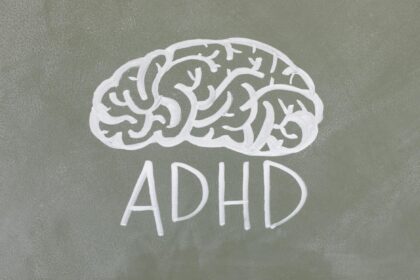
Understanding Chronic Fatigue Syndrome: When Tiredness Takes Over
Let’s talk about that never ending tiredness. Have you ever had one of those days where just getting out of bed feels like climbing a mountain? We’ve all been there—those moments when you feel completely wiped out after a busy week or sleepless night. But what if that exhaustion sticks around long after you’ve had your rest? Enter Chronic Fatigue Syndrome (CFS), a condition that goes way beyond the occasional tired day. Let’s chat about what normal fatigue looks like, when it crosses the line into concerning territory, the signs according to DSM-5, and how both psychology and Ayurveda can help you navigate this challenging situation.
Tiredness : Normal Fatigue vs. Concerning Fatigue
Tiredness & Normal Fatigue:
So, first off, let’s define what normal fatigue or tiredness is. You know that feeling you get after a long day at work or running errands? Totally normal! A little downtime, some good food, and a good night’s sleep usually do the trick to help you bounce back.
Concerning Fatigue:
Now, here’s where it gets tricky. When you’re feeling constantly drained, even after a full night’s sleep or a relaxing weekend, it might be time to pay attention. Chronic Fatigue Syndrome is more than just feeling tired; it’s a persistent feeling of exhaustion that lasts six months or more. Here are some signs that your fatigue might be waving a red flag:
- Prolonged Fatigue: If you feel worn out for weeks on end and resting doesn’t help, that’s concerning.
- Post-Exertional Malaise: Ever feel like you’ve run a marathon after a simple task? That’s what we call post-exertional malaise, where even minor activities leave you feeling wiped out.
- Sleep Disturbances: If you’re logging hours in bed but still wake up feeling like you didn’t sleep at all, it’s a problem.
- Cognitive Difficulties: Struggling to concentrate or feeling like you’ve got a thick fog in your brain? Not cool.
- Joint and Muscle Pain: If you’re experiencing aches without swelling or redness, it might be time to take a closer look.
- Frequent Headaches: If new or more severe headaches are popping up, that could be another sign something’s off.
Signs and Symptoms According to ICD-10 & DSM-5
According to the ICD-10 (that’s the International Classification of Diseases), CFS falls under code G93.3. Here are some symptoms to keep an eye on:
- Fatigue and tiredness lasting more than six months
- Severe fatigue that affects your daily life
- Cognitive impairment or memory issues
- Sleep disturbances that leave you feeling drained
- Joint pain without swelling or redness
- Muscle pain and headaches
Now, the DSM-5 (the Diagnostic and Statistical Manual of Mental Disorders) outlines similar criteria, focusing on:
- Debilitating fatigue and tiredness lasting at least six months
- Ruling out other medical or psychiatric conditions that could explain the fatigue
- Symptoms that disrupt your social, occupational, or daily activities.
Vitamin Deficiencies and Chronic Fatigue Syndrome
Let’s chat about something that might surprise you: your diet can seriously impact how tired you feel! Vitamin deficiencies can zap your energy levels and contribute to fatigue. Here are a few key vitamins and nutrients to consider:
- Vitamin B12: This little powerhouse is crucial for energy production to fight tiredness and red blood cell formation. If you’re low on it, you might feel weak and fatigued.
- Vitamin D: If you’re not getting enough sunshine, this vitamin could be lacking. Low levels can lead to fatigue and even affect your mood.
- Iron: This is essential for transporting oxygen in your body, and an iron deficiency can lead to anemia, leaving you feeling tired and weak.
- Magnesium: This mineral is vital for energy production and muscle function. If you’re low on magnesium, you might experience fatigue and muscle cramps.
- Folate (Vitamin B9): This vitamin is key for cell division and DNA production. Low folate can result in fatigue and mood changes.

Foods and Supplements to Support Energy Levels
So, what can you eat to help boost your energy? Here are some foods and supplements that can make a difference:
Foods:
- Leafy Greens: Think spinach, kale, and Swiss chard, which are packed with iron and magnesium.
- Nuts and Seeds: Almonds, walnuts, and sunflower seeds provide healthy fats and protein to keep you energized.
- Whole Grains: Foods like quinoa, brown rice, and oats offer complex carbohydrates for sustained energy.
- Legumes: Beans, lentils, and chickpeas are rich in protein, fiber, and iron—perfect for a fatigue-fighting diet.
- Fish: Fatty fish like salmon and sardines are excellent sources of vitamin D and omega-3 fatty acids.
- Eggs: These are packed with vitamin B12 and other essential nutrients that can give you a boost.
- Fruits: Bananas, berries, and avocados not only taste great but also provide vitamins and natural sugars for energy.
If you can’t take wholesome diet, don’t worry here are some Supplements to consider :
- Vitamin B12: Especially important if you’re vegetarian or vegan.
- Vitamin D: If you’re low on this vitamin, a supplement can help, particularly in winter.
- Iron: Only take this if you know you’re deficient—too much iron can be harmful.
- Magnesium: This can help improve your sleep quality and reduce fatigue.
- Folic Acid: A great way to support your energy levels and mood.
Psychological Pathogenesis of Chronic Fatigue Syndrome
Now, let’s shift gears a bit and talk about the psychology behind CFS. A few psychological factors can contribute to the development and persistence of chronic fatigue:
- Stress Response: Chronic stress can mess with your body’s stress response system, leading to fatigue and mood changes. Think of it as your body getting stuck in overdrive.
- Cognitive Behavioral Factors: If you find yourself dwelling on negative thoughts, this can create a cycle that keeps fatigue going. The more you focus on feeling tired, the more tired you feel!
- Psychosomatic Factors: Emotional distress can manifest physically. If you’re dealing with emotional stress, it might show up as physical symptoms, making the fatigue even harder to shake off.
- De conditioning: If you’re too fatigued to be active, it can lead to a cycle where lack of movement leads to further fatigue. It’s a tough cycle to break!
Ayurvedic Perspective on Chronic Fatigue Syndrome
Now, let’s explore how Ayurveda views CFS. In Ayurveda, this condition is often linked to imbalances in your body’s energies, known as doshas, particularly Vata and Pitta. Here’s how Ayurveda looks at it:
- Ojas: This vital energy reflects your overall health and vitality. Low Ojas can lead to fatigue, weakness, and compromised immunity.
- Dosha Imbalance: CFS is often connected to Vata and Pitta imbalances. Vata governs movement and energy, while Pitta is all about transformation and metabolism. When these doshas are out of balance, it can lead to fatigue and burnout.
- Pathogenesis According to Ayurveda: Several factors can contribute to chronic fatigue:
- Dietary Choices: Poor eating habits or too many processed foods can lead to low Ojas.
- Lifestyle Factors: Overworking, not getting enough sleep, and inadequate stress management can aggravate Vata and Pitta.
- Emotional Stress: Chronic emotional disturbances can deplete Ojas, contributing to exhaustion.

Signs and Symptoms According to Ayurveda
So, what should you look out for according to Ayurveda? Here are some signs that might indicate low Ojas or dosha imbalances:
- Low Energy: A persistent feeling of being drained or lacking motivation.
- Digestive Issues: An irregular appetite, bloating, or discomfort can signal imbalance.
- Sleep Disorders: Difficulty falling asleep or waking up feeling unrefreshed.
- Mood Changes: Increased anxiety or irritability might be more than just a passing phase.
- Body Aches: Experiencing generalized aches without a clear cause can also be a sign.
What to Do : Psychological Approaches to Manage CFS
If you’re grappling with chronic fatigue, consider these psychological strategies:
- Cognitive Behavioral Therapy (CBT): This therapy can help you challenge negative thoughts and beliefs that keep you feeling fatigued. By changing your mindset, you can start to see improvements in your energy levels.
- Mindfulness and Relaxation Techniques: Practices like meditation, deep breathing exercises, and progressive muscle relaxation can help ease stress and improve your overall well-being.
- Pacing: It’s important to find a balance between activity and rest. Gradually increase your physical and mental tasks while allowing time for rest to avoid worsening your symptoms.
- Support Groups: Connecting with others who understand what you’re going through can provide emotional support and practical coping strategies.
- Goal Setting: Start with small, achievable goals to create a sense of accomplishment and motivate you to tackle daily tasks.
Ayurvedic Solutions to Combat Chronic Fatigue & Tiredness
Now, let’s explore some Ayurvedic remedies that may help manage chronic fatigue:
- Ojas-Boosting Herbs:
- Ashwagandha: This adaptogenic herb is famous for its stress-relieving properties and can help boost your energy levels.
- Shatavari: A wonderful herb for supporting vitality and balancing Pitta dosha.
- Brahmi: Known for its calming effects, it can help improve mental clarity and reduce stress.

- Lifestyle Practices:
- Routine: Create a daily routine that includes regular meal times, sleep, and relaxation.
- Gentle Exercise: Incorporate light activities like yoga or walking to help build your stamina without overdoing it.
- Adequate Sleep: Prioritize getting a restful night’s sleep to help your body recharge.
- Dietary Changes to beat tiredness :
- Ojas-Promoting Foods: Focus on nourishing foods like ghee, honey, almonds, and fresh fruits to support energy and vitality.
- Hydration: Don’t forget to drink plenty of water to stay hydrated, as dehydration can contribute to fatigue.
- Avoid Aggravating Foods: Cut back on caffeine, processed foods, and too much sugar, which can lead to energy crashes.
Fatigue is more than just feeling tired—it’s an overwhelming exhaustion that can affect all areas of life. Chronic stress and anxiety drain mental energy, making even simple tasks feel challenging. Poor sleep from insomnia only deepens fatigue, leaving the body and mind in a constant state of burnout. Persistent fatigue is also commonly linked to depression, where motivation and energy are hard to maintain. Additionally, fatigue often leads to forgetfulness, as the mind struggles to stay sharp when it’s constantly drained. Addressing the root causes of fatigue can make a real difference in restoring vitality and focus.
Understanding Tiredness
Chronic Fatigue Syndrome and tiredness can be a complex and frustrating condition, but understanding it can be the first step toward feeling better. Whether you resonate more with psychological approaches, Ayurvedic wisdom, or a blend of both, remember that you’re not alone in this journey. And if things feel overwhelming, don’t hesitate to reach out for professional support. Your health is worth it!
Follow us on Instagram for daily dose of inspiration and info on self healing and subscribe to our Youtube Channel to keep up with in detailed information explained step by step. Thank you for sticking around.






I’m blown away by how great this site is!
It’s filled with exciting, interesting features.
Thank you 🙂
Wonderful post however I was wanting to know if you could write a litte more on this subject? I’d be very grateful if you could elaborate a little bit further. Many thanks!
I am Glad that you found this helpful. Will definitely write further about this. thank you 🙂
Wonderful beat ! I wish to apprentice while you amend your site, how can i subscribe for a blog web site? The account helped me a acceptable deal. I had been a little bit acquainted of this your broadcast provided bright clear concept
Thank you! If you’d like to stay updated, you can subscribe to my newsletter on my website. Let me know if you need any help!
The articles you write help me a lot and I like the topic
Thank you 🙂